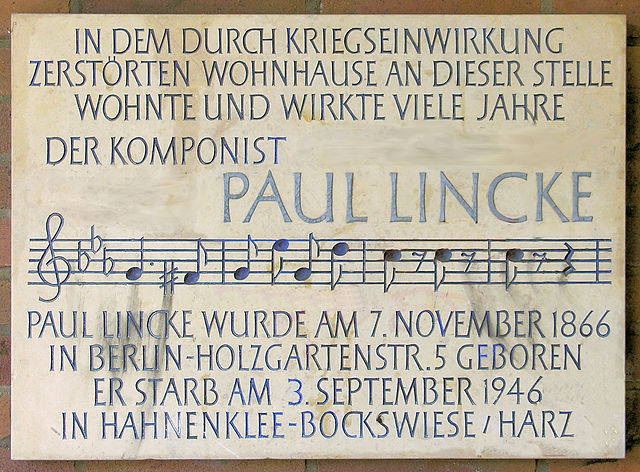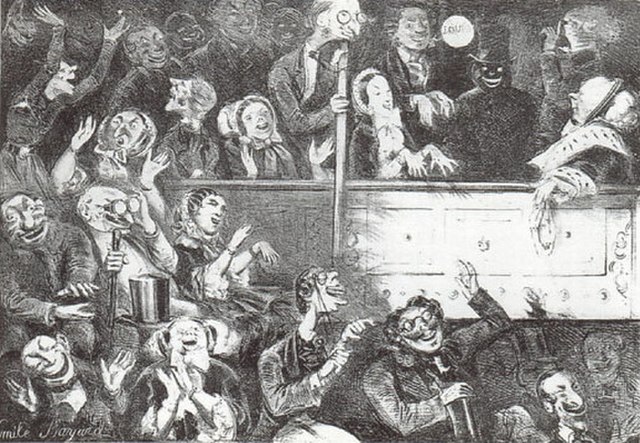Carl Emil Paul Lincke was a German composer and theater conductor. He is considered the "father" of the Berlin operetta. His well-known compositions include "Berliner Luft", the unofficial anthem of Berlin, from his operetta Frau Luna; and "The Glow-Worm", from his operetta Lysistrata.
Paul Lincke on a German postage stamp, 1996
Memorial at Oranienstrasse 64, Berlin. "In the house on this site, which was destroyed as a result of war, lived and worked for many years the composer Paul Lincke. Paul Lincke was born on 7 November 1866 in Berlin at Holzgarten St. #5; he died on 3 September 1946 in Hahnenklee-Bockswiese in the Harz mountains."
Operetta is a form of theatre and a genre of light opera. It includes spoken dialogue, songs, and dances. It is lighter than opera in terms of its music, orchestral size, length of the work, and at face value, subject matter. Apart from its shorter length, the operetta is usually of a light and amusing character. It sometimes also includes satirical commentaries.
The audience at the Théâtre des Bouffes-Parisiens, the birthplace of Jacques Offenbach's operettas. Caricature of 1860 by Émile Bayard.
A Columbia Records advertisement for a recording of Rita Montaner in a production of Eliseo Grenet and Ernesto Lecuona's Niña Rita, o, La Habana en 1830, an operetta from the Spanish genre of zarzuela.
Cover page of Boccaccio, oder Der Prinz von Palermo (Boccaccio, or the Prince of Palermo) by Franz von Suppé in 1879. An example of early Viennese operetta.
Playbill for a revival of Orphée aux enfers






